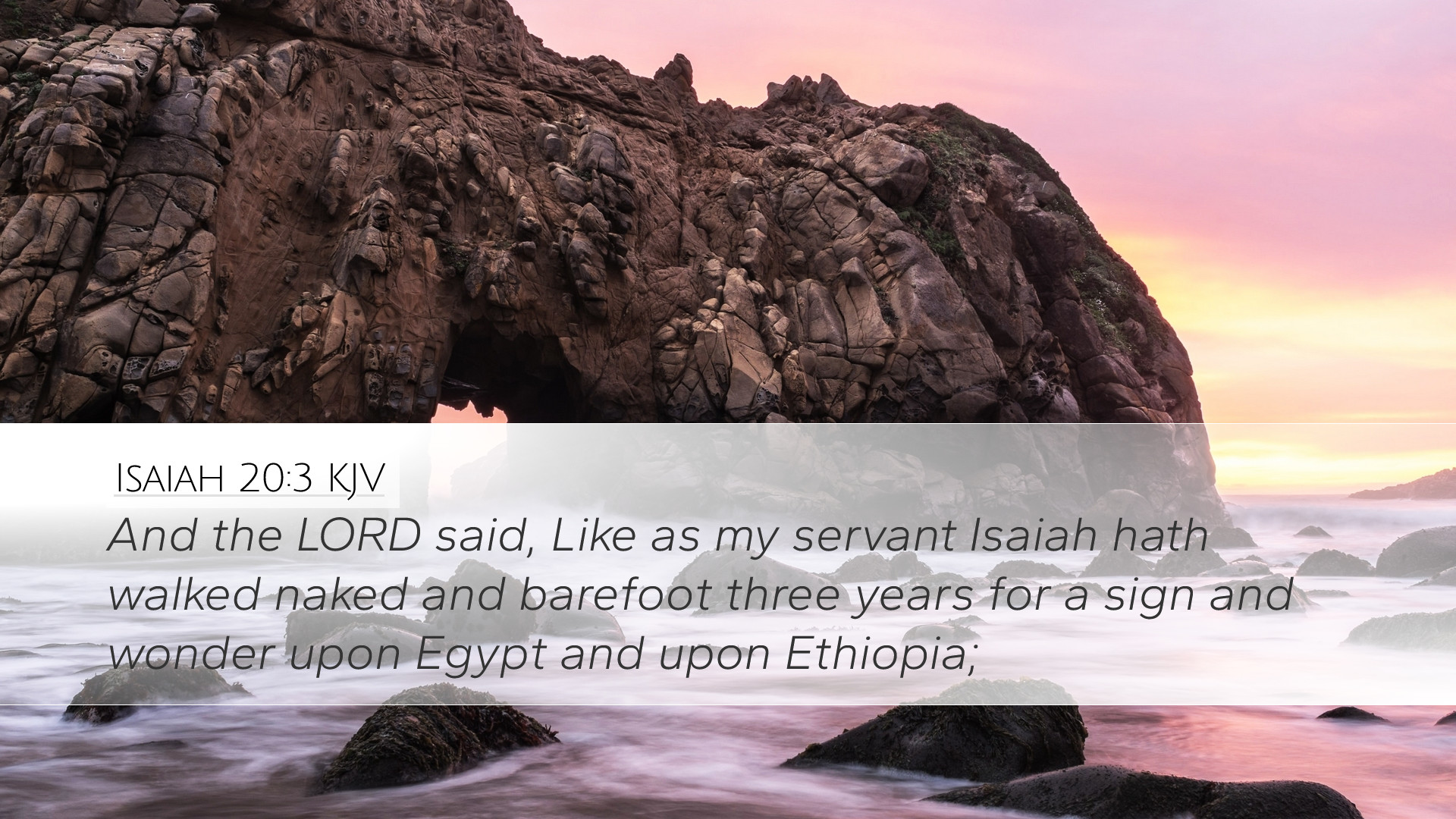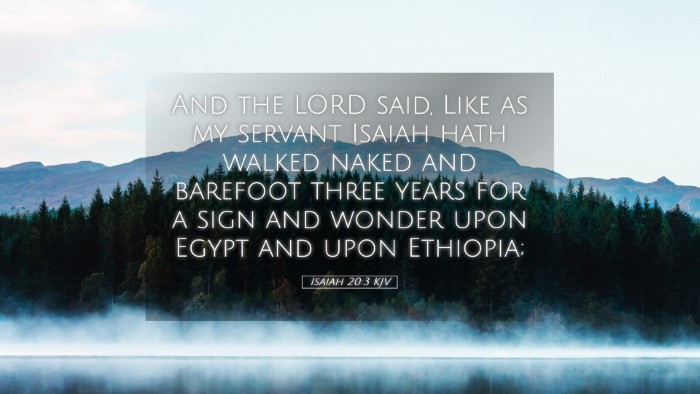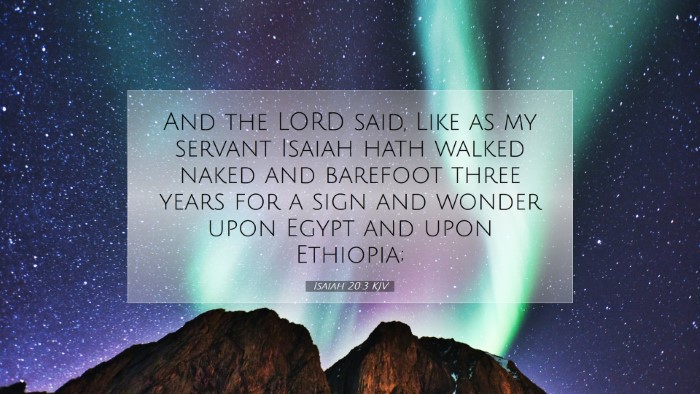Isaiah 20:3 Commentary Summary
Verse Reference: Isaiah 20:3 - "And the LORD said, Like as My servant Isaiah hath walked naked and barefoot three years for a sign and wonder upon Egypt and upon Ethiopia."
Introduction
This verse presents a remarkable moment in the prophetic ministry of Isaiah, illustrating both the gravity of his message and the extreme measures God sometimes calls His servants to take for the sake of conveying divine truth. The act of walking naked and barefoot was symbolic and served as a visual representation of impending judgment against Egypt and Ethiopia. This commentary seeks to explore the theological implications of Isaiah's actions, the historical context, and the applications of this passage for contemporary readers.
Theological Significance
The act of Isaiah walking naked and barefoot can be understood as a direct communication from God to His people and those around them. As noted by Matthew Henry, the nudity represented the utter desolation and vulnerability that would come upon Egypt and Ethiopia due to their impending downfall (Henry, Matthew. Matthew Henry’s Commentary). This prophetic action illustrates God's displeasure and serves as a stark warning not only to the nations mentioned but also to Israel regarding the consequences of turning away from Him.
Albert Barnes expands on this, clarifying that Isaiah's actions emphasized the shame and captivity that would befall these nations (Barnes, Albert. Notes on the Old Testament). Isaiah’s nakedness symbolized not only physical vulnerability but also spiritual nakedness before God, a state devoid of righteousness and protection. This imagery highlights the futility of relying on earthly powers for security.
Historical Context
The historical context of Isaiah 20 is crucial for understanding its full meaning. During the time of Isaiah, both Egypt and Ethiopia were significant powers in the region. They were often in conflict with Israel, and their alliances and military endeavors were matters of great concern for the Hebrew nation.
According to Adam Clarke, this prophetic enactment acts as a warning to Israel against their reliance on these nations for help, which would ultimately prove futile (Clarke, Adam. The Holy Bible with a Commentary). Isaiah's three years of nakedness and barefoot walking was a stark contrast to the expected strength and grandeur of these empires. It served as both a prophecy and an indictment. His actions embodied the warning to Israel that trusting in human might leads to judgment, while reliance on God leads to salvation.
Symbolism and Interpretation
The symbolism of Isaiah's nakedness is rich and multifaceted. The spiritual interpretation signifies not just physical vulnerability, but a call for the people to recognize their need for genuine faith and God's protective covering. As Matthew Henry comments, this nakedness represented the condition of the nations, stripped of their dignity and rendered bare before God’s judgment.
- Sign of Judgment: Isaiah’s condition acted as a visual sign that pointed toward impending calamity.
- Call to Repentance: The prophetic act was not just a warning but also an invitation to the people to turn from their ways.
- Community Response: Such actions would draw attention and force the community to grapple with the seriousness of Isaiah's message.
Application for Contemporary Readers
The passage has significant implications for modern readers, particularly for pastors and theologians who are called to convey challenging truths. Today, the notion of being a prophetic voice often requires uncomfortable truths to be pronounced, much like Isaiah's experience. Here, contemporary readers can draw upon several points of application:
- Faithfulness in Calling: Isaiah's obedience serves as an exemplar for believers to remain steadfast in God's calling, regardless of the personal cost.
- Courage in Confrontation: The challenge of confronting societal norms or the allure of political alliances speaks directly to the modern church's situation in a complex world.
- Prophetic Imagination: Like Isaiah, modern Christians are encouraged to use creative expressions in their prophetic witness, challenging norms, and inviting responses.
Conclusion
In summary, Isaiah 20:3 serves as a profound reminder of the prophetic office and the burdensome call to communicate God’s warnings to nations. The actions of Isaiah—walking naked and barefoot—underscore themes of judgment, repentance, and vulnerability before God. For pastor, student, or scholar alike, this passage invites deep reflection on our own call to witness and the ways we might convey God’s truth in a world that often disregards it. As we consider Isaiah's remarkable obedience, we are challenged to embrace our own prophetic roles, faithfully speaking truth in love no matter the cost.


